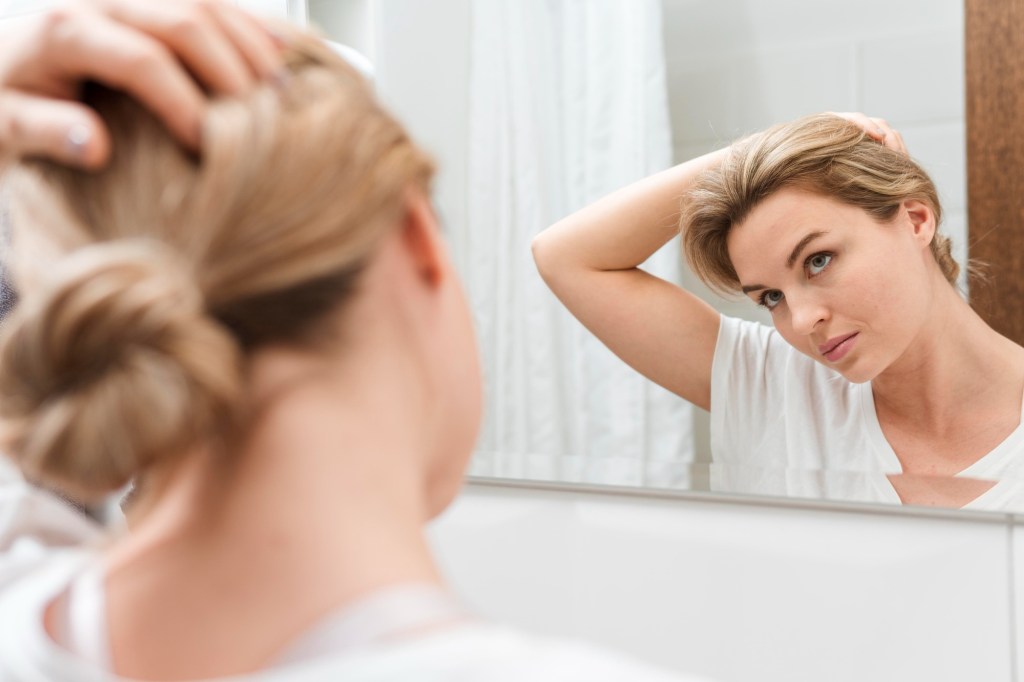After pregnancy, your hair falls out? This can be very worrying. But the good news is: the problem of hair loss will pass. Hair loss after pregnancy is normal. In this article, you will learn what hair loss after pregnancy is all about and what you can do about it.
Is hair loss after pregnancy normal?
Yes, it is absolutely normal. As with so many changes in the female body, sex hormones play a big role in hair loss. In the period between fertilisation and birth, oestrogen levels rise sharply. It gives most women, among other things, a particularly clear, beautiful complexion, strong nails and shiny, full hair. This is because oestrogen slows down the natural process of hair growth and loss, the hair cycle. More precisely, the hair stays longer in the growth phase.
Does hair loss after pregnancy grow back?
Pregnancy can cause many changes in a woman’s body, including hair loss. For some women, pregnancy-related hair loss can be temporary and the hair will grow back after the baby is born. For others, however, it may take longer for the hair to grow back. Fortunately, there are several ways to speed up healthy hair growth after pregnancy. These include eating a balanced diet rich in vitamins and minerals, using special shampoos and taking supplements if necessary. With these tips, many women can look forward to regaining their pre-pregnancy hair volume in no time.
How long does hair loss last after pregnancy?
In most cases, hormone levels normalise after three to six months, and the hair life cycle returns to normal. In some cases, it can take up to a year for hair loss to disappear after pregnancy and hormone changes.
What to do against hair loss after pregnancy?
Unfortunately, there is not much you can do about hair loss. After pregnancy and birth, your body needs rest and time to regenerate. The exertions of childbirth, lack of sleep, stress and malnutrition can increase hair loss. Therefore, take the following advice to heart:
- Allow your body to rest.
- Eat a healthy and balanced diet.
- Use gentle shampoos to protect your hair and scalp.
- If you have longer hair, wear it loose. A plait or ponytail increases mechanical irritation and makes it easier to fall out.
- A scalp massage stimulates the blood circulation in the scalp.
- Avoid stress and situations that make you feel uncomfortable.
- Use good combs and brushes that do not roughen the horny layer.
- Avoid hairstyles that are tied too tightly and pull on the scalp. They can increase hair loss or cause inflammation of the hair follicles, which can cause hair loss.





Pingback: Zinc for Hair Loss - Best Treatment - Your Lifestyle and Digital Knowledge